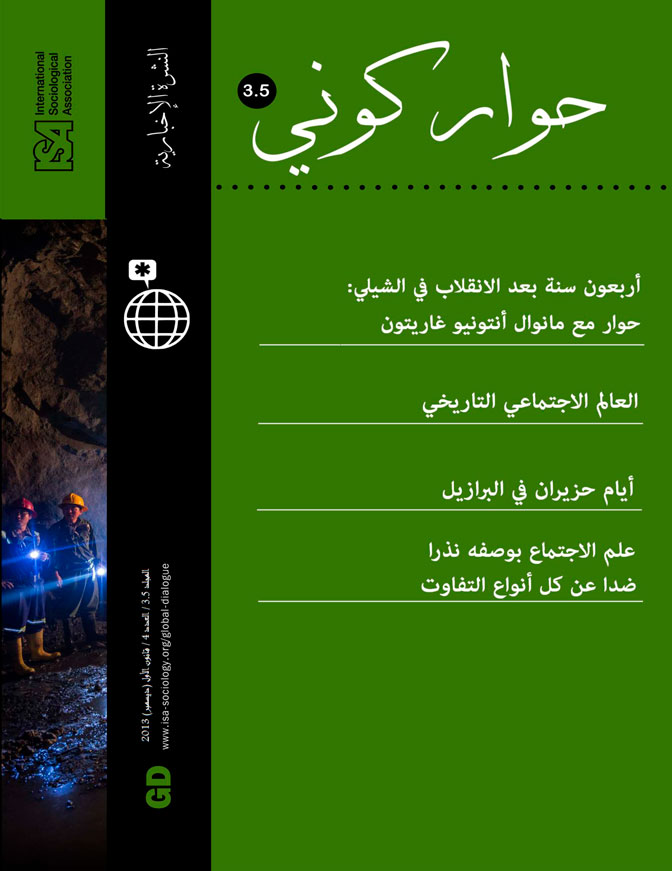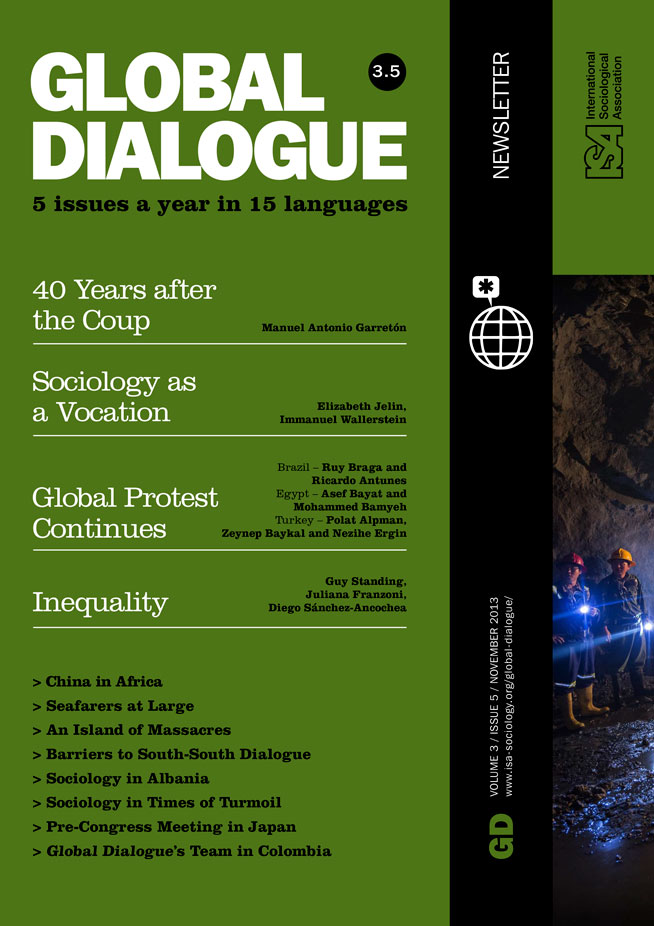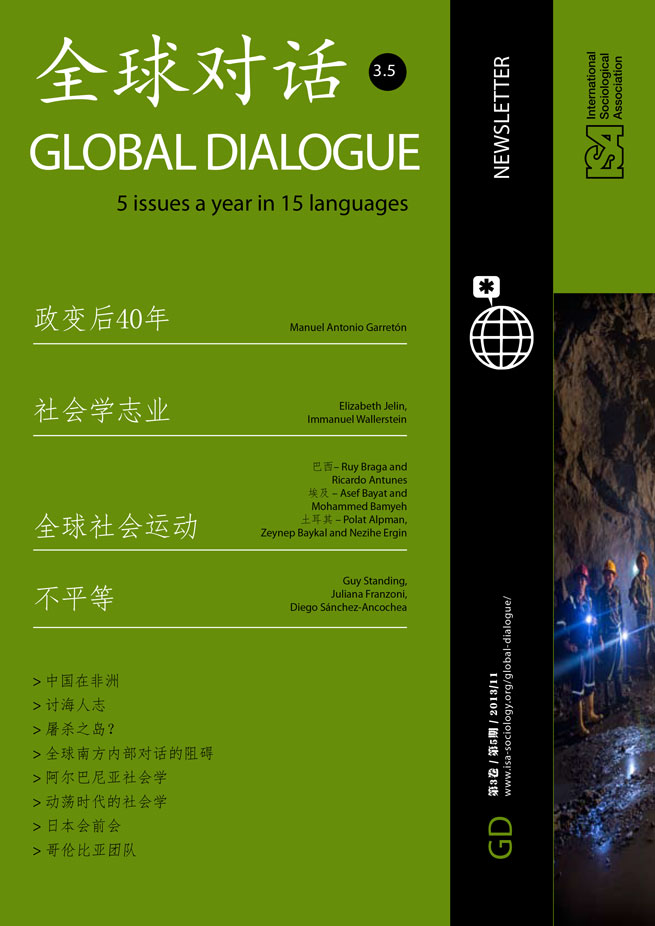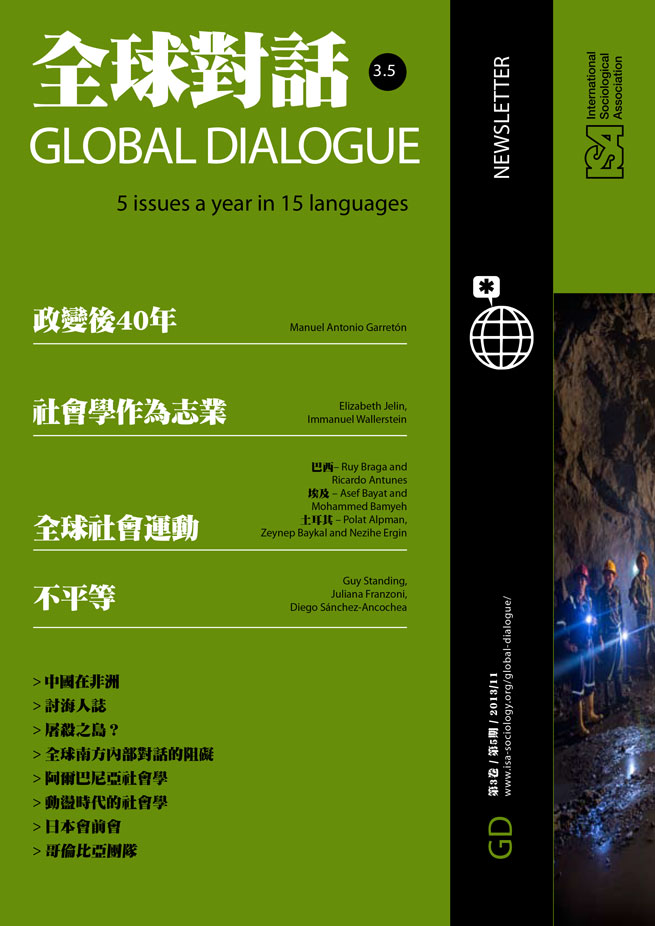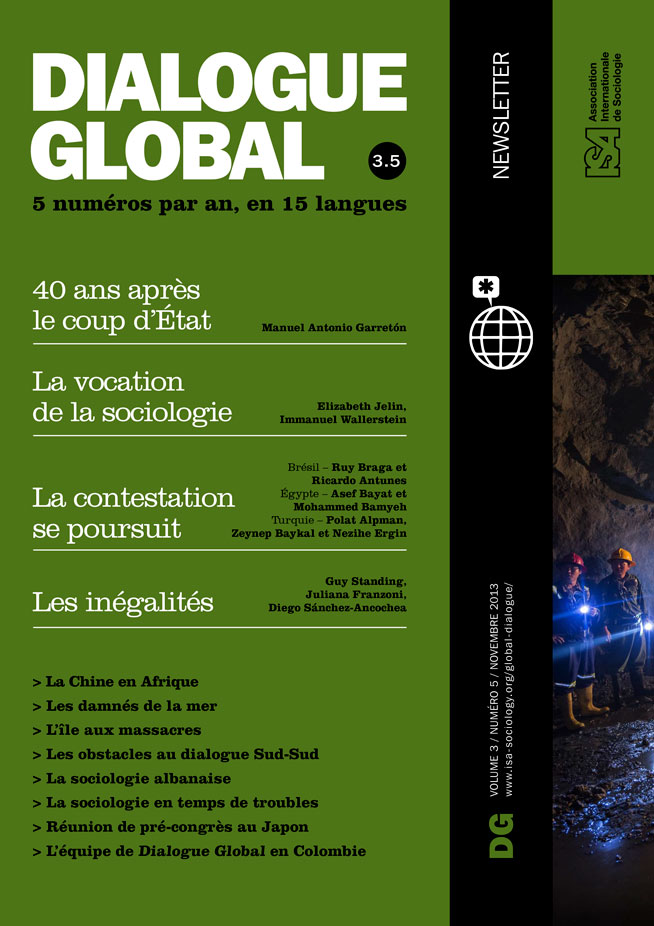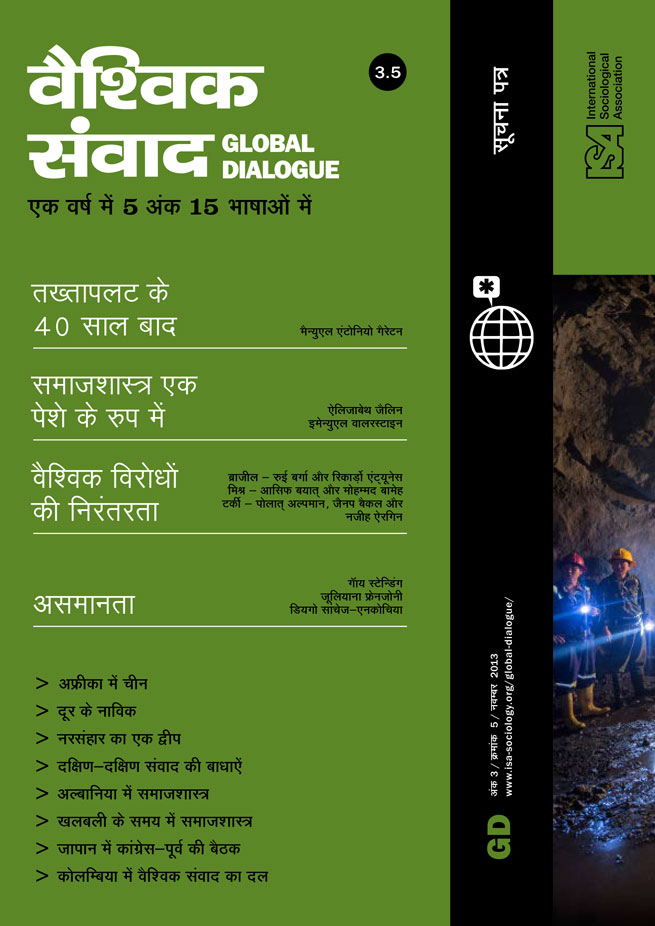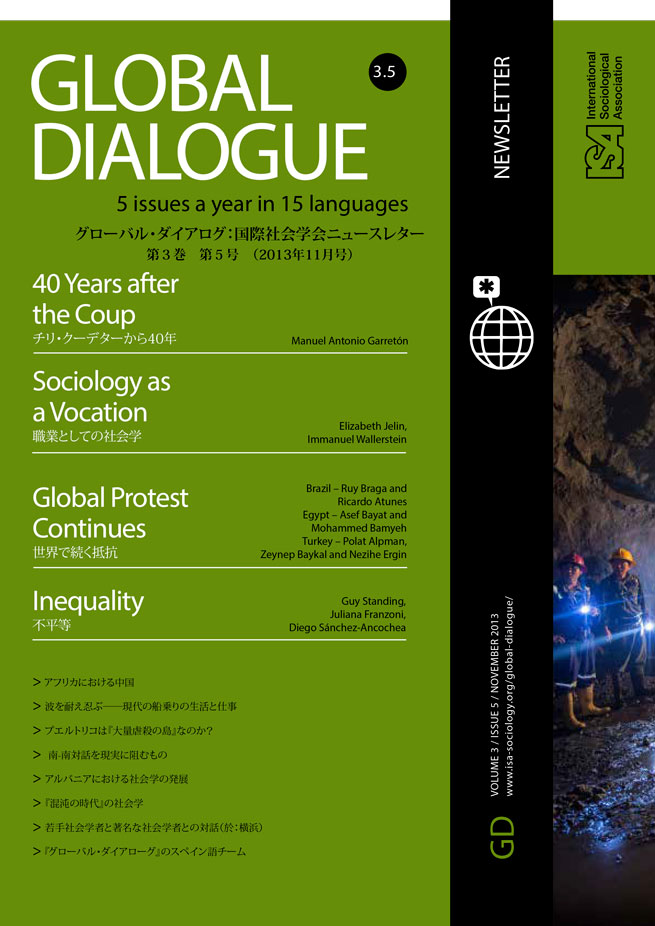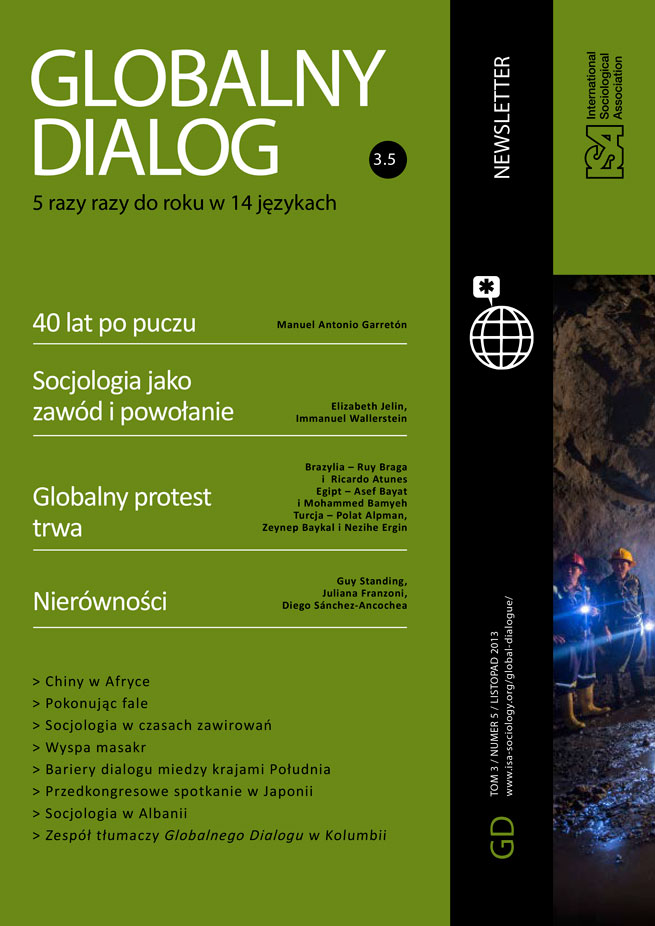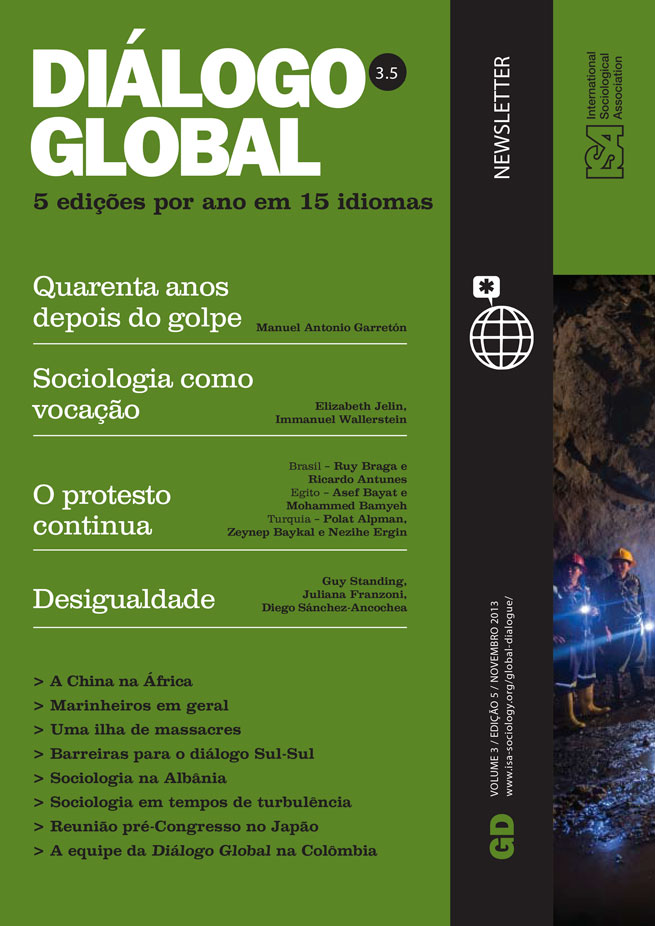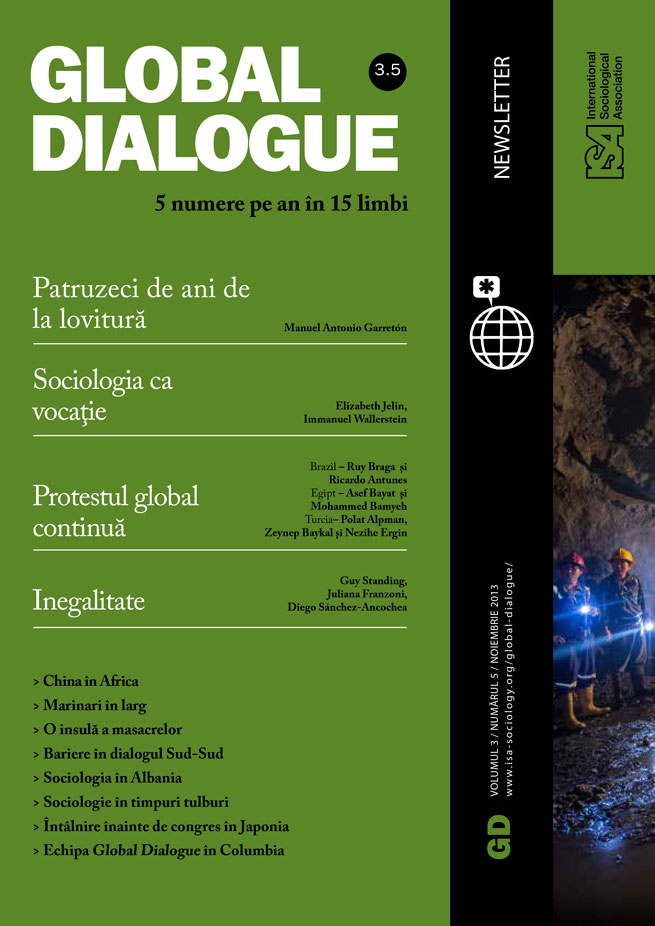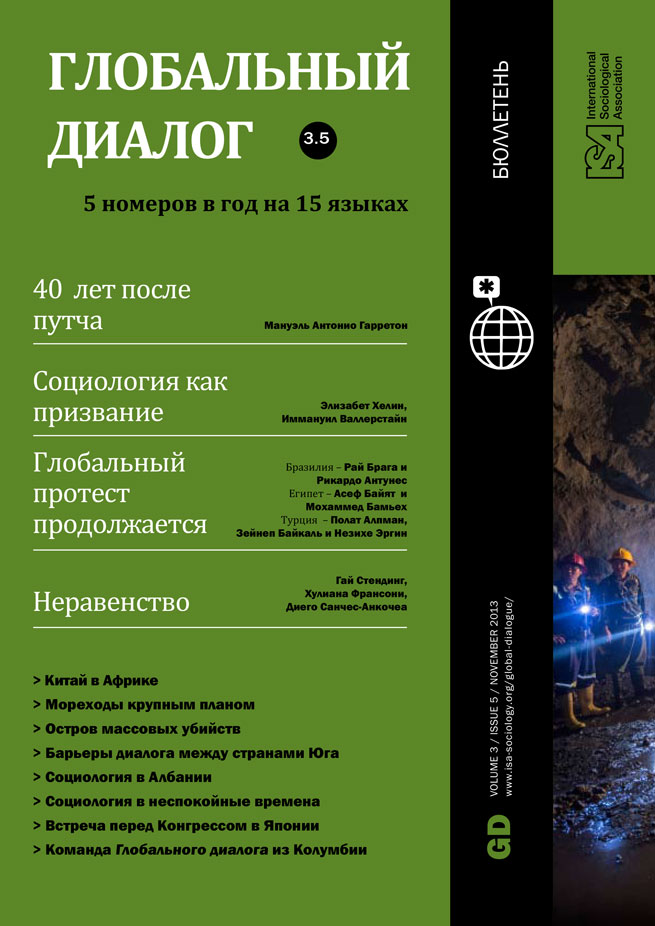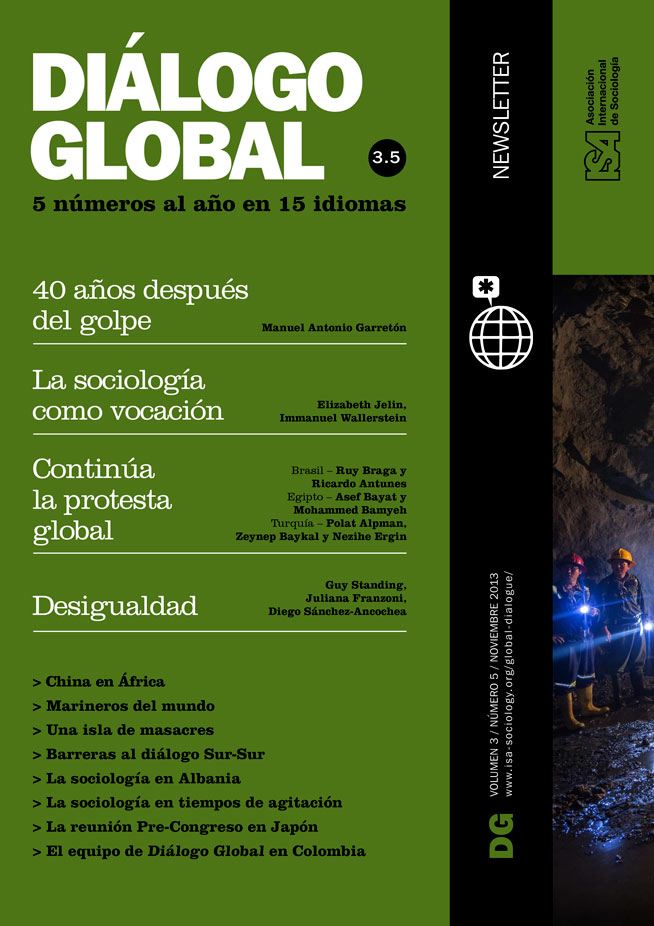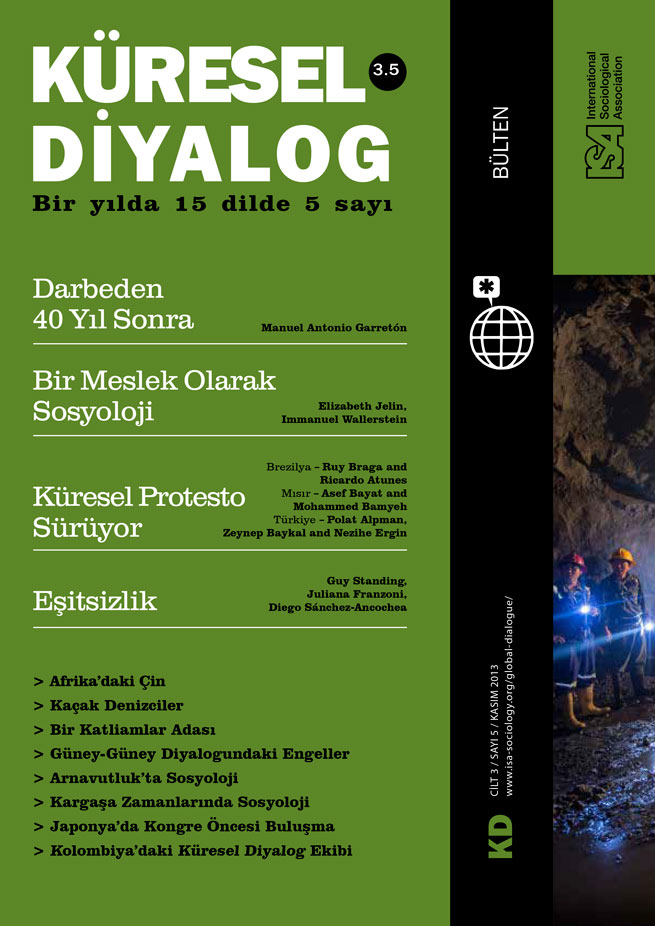Read more about Notes from the Field

Puerto Rico: An Island of Massacres?
by Jorge L. Giovannetti
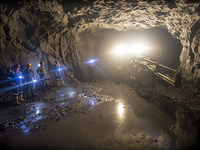
China in Africa
by Ching Kwan Lee
October 25, 2013
A seafarer is perched on a rail at the back of the ship. The hot Mexico sun beats down on him. It is so fierce that the air seems to crackle. The seafarer is at his mooring station, with a VHF radio, waiting for instructions. He has been there for two hours but he cannot walk away. He cannot seek shade and there is nothing to drink. He does not know how much longer he will wait. The ship is a tanker. It is berthed at a port in Mexico and has been delayed. The pilot is on board waiting to guide the vessel into open seas. The Captain and navigating officers are on the bridge. Yet still nothing happens. An inbound vessel has grounded in the approaches to the port and the ship is waiting for permission to depart. The throat of the seafarer is parched. He is tired and he is miserable but he will not complain.
I met this seafarer while doing participant observation research aboard ships at sea[1] – research funded by the UK Economic and Social Research Council at the Seafarers International Research Centre (SIRC), based at Cardiff University. His name was Miguel[2] and I was with him and his fellow crew members on a voyage aboard a twenty-year old tanker built in Japan. The tanker was relatively small by modern standards at 40,500 dead weight tons. Its total length was 179 meters and its width 30 meters. All the seafarers on board were men and they hailed from five countries. The officers were Croatian, Pakistani, and Bangladeshi. The “ratings” – seafarers – were from the Philippines and the fitters were from Turkey. Miguel was a Filipino able-bodied seaman (AB). As such he was a rating but not the lowest ranked rating on board (who would be an “ordinary seaman” or a “messman”). Miguel and his fellow Filipinos were employed on a nine month contract by an agency which supplied seafarers to the ship operator. If he had complained he would have been sent home. If he had been sent home he feared he would have been blacklisted by crewing agents across Manila and might never have worked at sea again. Then, the new house he was building for his family would not have been completed. He would not have been able to afford his parents’ medical care and his children would not have received the education he wanted for them. Cousins, aunts, and uncles all depended on his dollar remittances and there were no opportunities ashore which would allow him to earn anything approaching the amount he was paid at sea. He did not even think of complaining.
The life of a seafarer is completely dominated by work. “Officers of the watch,” work seven days a week, every week of their contract. As one seafarer described it “My job is very tedious, very hard working… 365 days on board, everyday working, everyday working, everyday working.” Sometimes, when a ship is far from the coast seafarers who are not watch-keepers may be allowed to take Sunday off. On a few ships a barbecue might be arranged. On many, Sunday is not marked by anything special except for a few hours of rest. In port nothing disrupts the rhythm of work, neither the time of day nor the day of the week. The ship only makes money for its operator if it is regularly on the move. An efficient ship comes in and out of port in a matter of hours, loading and discharging cargo so quickly that seafarers rarely get a chance for shore leave. The ship is described by many as a prison but it’s a prison that pays and in developing countries there is a ready supply of seafarers willing to sacrifice their family lives, their friendships, and their own pleasures, for the financial return that regular work with reputable international companies may bring. As one seafarer explained “life on ship is very lonely… I miss my children, it’s hard working on ships, very hard.”
However, for many seafarers the price of work at sea is higher still. Seafaring is a dangerous occupation. In November 2011, a small bulk carrier off the coast of North Wales broke in two in rough seas and six of the eight seafarers on board died. A survivor described how “it broke in half right across the middle. I saw it with my own eyes… it was hopeless trying to save her”[3]. This is not uncommon. In 2010 around one ship in every 670 was lost. There are risks, too, from the nature of the work on board: risks of back injuries; crushed fingers; broken bones; eye injuries; risks from the cargo and from heavy machinery; and risks from noxious fumes. Then too, there are concerns for the mental health of seafarers who are confined on a vessel for months on end. They may be working with other nationalities using a second language (generally English) to communicate. They may have infrequent contact with their families, poor food, and cramped accommodation. Furthermore they have little chance to get away from the surveillance of their managers. Life at sea is dominated by strict hierarchy and this pertains day and night, when working and when off duty. There is no escape and little respite.
[1] See Sampson, H. (2013) International Seafarers and Transnationalism in the Twenty-First Century. Manchester: Manchester University Press.
[2] Miguel is a pseudonym used to protect the identity of the seafarers who have participated in our research.
[3] BBC news. “Swanland shipwreck to be examined by robot submarine,” January, 6, 2012.
Helen Sampson, Cardiff University, UK and Board member of the ISA Research Committee on Sociology of Work (RC30)
This issue is not available yet in this language.
Request to be notified when the issue is available in your language.
If you prefer, you can access previous issues available in your language:
